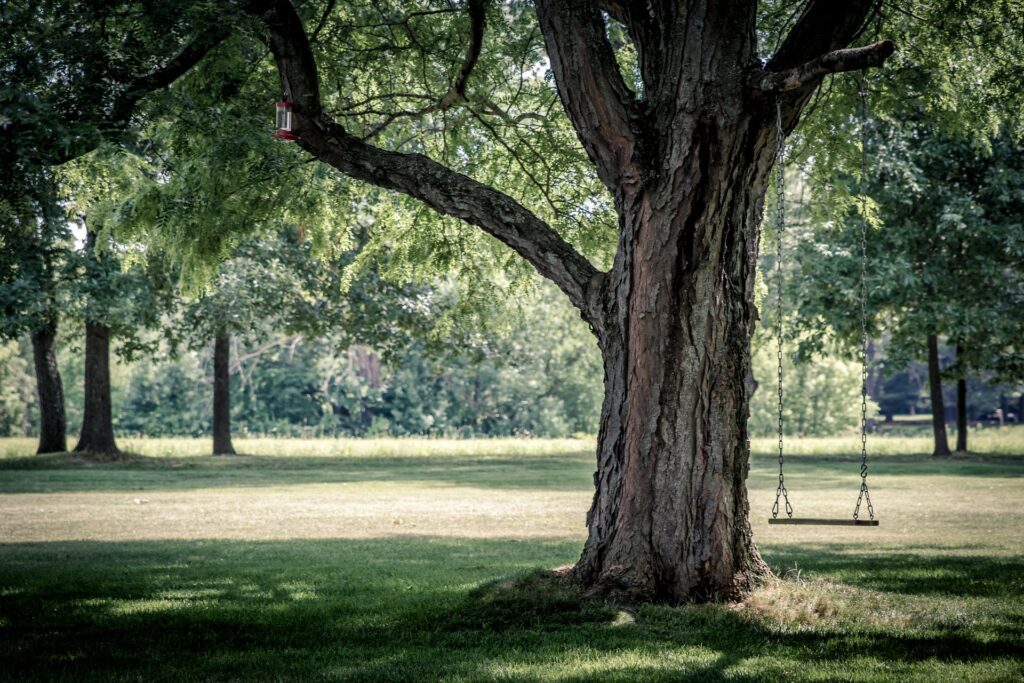Planting a tree on your property can be very beneficial to your family and the community. Trees can have the ability to lower your heating and cooling bills by providing shade in the summer and reducing wind in the winter season. They also clean the natural air, help fight climate change and are even linked to improving mental health. With that being said, choosing the right tree for your property can sometimes be stressful. Here, POPS Landscaping discusses how to choose the right trees for your front or backyard this Spring season.
Things To Consider
Available Space To Grow
When it comes to planting a tree in your yard, the available space for growth is important. First, determine the width of the area where you would like to plant your trees? Is the area near the house, fence or other plants or trees? If so, it is important to measure out how much room there is for a tree to grow without being restricted.
Secondly, check above the growth area for potential restrictions. If you have a roof and power line directly above your tree, determine the height of your tree when it is fully grown. A tree growing into power lines can cause problems and will be trimmed and cut by Public Works Services in your community. Additionally, you wouldn’t want your tree to grow and start running into your roof or ceiling. Finally, consider where the tree will cast its shadow. Shade is generally welcome except near vegetable gardens, where you want full sun.
Determine The Function Of Your Tree
One of the things in finding the best tree for your yard is determining what you would like them to do. How would you like a new tree to contribute to your landscaping? Are you looking for additional shade? Would you like to use them as a privacy shield? Does your landscape need more color? Do you want to plant a tree that will support wildlife such as pollinators and birds? Make a list of what you want your new tree to do in your landscape. This can help you decide which tree is best for your property. Consult with a professional landscaper if you are confused about which trees can do what for your yard.
Consider Growing Conditions
What is your hardiness zone? The U.S. Department of Agriculture has identified different climatic zones across the country and rated them on a scale of 0 to 12. Zone 0 is known as permafrost and is not suitable for trees. Zone 12, on the other hand, designates year-round, frost-free sites like the deep south and some coastal areas. You can find your hardiness scale by entering your zip code on their website, or you can use the National Arbor Day’s Tree Wizard.
Knowing more about your growing conditions can help you narrow down your choices of trees. Take note of your planting site, especially how much light it gets, the soil type, and natural amounts of moisture. Some trees thrive in loose, sandy soil while others will tolerate heavier clay soil. Many trees demand all-day sun for best growth and a few flourish in shade. You will either need to carefully select something that is suited to the existing conditions, or do what you can to make your site more suited for what you want to grow.
Tree Debris
Even the amount of debris dropped can have implications for how you use your backyard. Some trees have slender, fragile tips to their branches that come down in the lightest wind. Other trees drop seedpods, fruits, or nuts. Some of the droppings are sharp or uncomfortable to walk on and others create extensive debris that requires frequent clean up. Be sure to consider the debris that comes from a tree before planting it.
Don’t Forget About Winter Conditions
Deciduous trees, those that shed their leaves in fall, take on a whole new look in winter. How will your tree contribute to the winter landscape? If you want privacy year-round, an evergreen tree is a better choice than a deciduous tree. If cooling summertime shade is more important, then select a deciduous tree.


Call POPS Landscaping Today
P.O.P.S. Landscaping offers a full range of landscape maintenance services, tailored to meet your residential or commercial needs. The more homes in one neighborhood we service, the more competitively priced we can be on each property! P.O.P.S. also offers a full-service lawn maintenance program on an annual contract, weekly or biweekly service agreement. This program is a ‘highly manicured’ type that is all-inclusive. Our fee ranges from $250 to $750 per month for most residential or commercial properties. Ask about our referral programs. Give us a call today!



